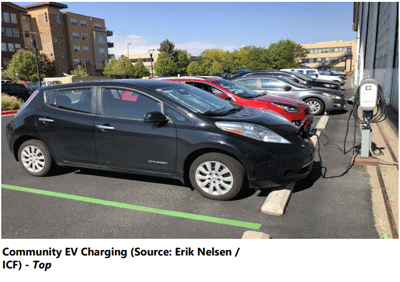
Charging and Fueling Infrastructure
New competitive grant program created to strategically deploy publicly accessible electric vehicle charging and alternative fueling infrastructure in urban and rural areas.
PROGRAM OVERVIEW
- The CFI Program was established by the Bipartisan Infrastructure Law (BIL)
- Authorized to strategically deploy publicly accessible electric vehicle charging and other alternative fueling infrastructure in communities and along designated Alternative Fuel Corridors (AFCs)
- BIL established two distinct funding categories within CFI: Community Grants and Corridor Grants
- Both Community and Corridor Grants are included in the current Notice of Funding Opportunity for Fiscal Year FY22 and FY23 offering up to $700M
- BIL authorized funding for FY22 through FY26 for this program ($2.5B total)
Deadline to apply for
first round funding:
May 30, 2023
Visit Grants.gov or
contact Green Ways 2Go
to streamline the
process (fee-based)


PROGRAM GOALS
The CFI Program will accelerate an electrified and alternative fuel transportation system that is convenient, affordable, reliable, equitable, accessible, and safe. The CFI Program will also help put the U.S. on a path to a nationwide network of at least 500,000 EV chargers by 2030 and improve networks for vehicles using hydrogen, propane, and natural gas
- Supplement, not supplant, necessary private sector investment • Complement existing Federal programs
- Facilitate broad public access to a national infrastructure network to accelerate adoption of zero emission vehicles
- Implement Justice40 objectives, lower transportation costs, and increase economic opportunity
- Advance job quality, workforce development, and workforce equity
- Reduce greenhouse gas and vehicle-related emission
COMMUNITY FUNDING ELIGIBLE PROJECTS
- Any project that is expected to reduce greenhouse gas emissions and to expand or fill gaps in access to infrastructure.
- Infrastructure is publicly accessible charging and fueling infrastructure.
- Projects may be located on any public road or in other publicly accessible locations, such as parking facilities at public buildings, public schools, and public parks, or in publicly accessible parking facilities owned or managed by a private entity.

ELIGIBLE APPLICANTS


